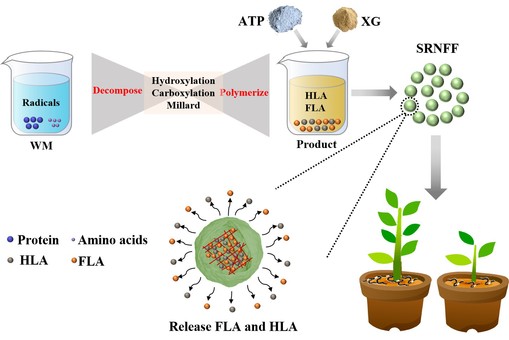Recently, a team of researchers led by Cai Dongqing from the College of Environmental Science and Engineering has achieved new progress in the field of rapid decomposition of organic waste, and the research results were recently published in the prestigious international journal Nature Communications (DOI: 1038/s41467-023-44422-5) under the title of Waste Milk Humification Product Can Be Used as a Slow Release Nanofertilizer. Donghua University is the first corresponding author, researcher Cai Dongqing from College of Environmental Science and Engineering is the corresponding author, and lecturer Zhu Yanping is the first author.
Considering the significant content of carbon, nitrogen, phosphorus, and other nutrients in high-protein wastewater from the food industry, which is non-toxic itself and can serve as an ideal organic fertilizer material, in this paper, waste milk was selected as the target for treatment. An efficient non-biological process was innovatively employed to achieve rapid decomposition within a few hours. The resulting product was transformed into a high-efficiency nano slow-release fertilizer rich in humic acid and potassium. Preliminary results from pot experiments show that the prepared slow-release fertilizer exhibits more significant fertilization effects compared to traditional organic fertilizers and potassium fertilizers. Additionally, it also demonstrates good acid soil remediation effects. The economic cost analysis shows that the cost of this process is comparable to traditional composting methods, indicating its high potential for practical application. This process offers several advantages over traditional biological treatments, including high processing efficiency, less carbon loss, and a smaller land footprint, offering thus a new pathway for the agricultural resource utilization of organic waste.



